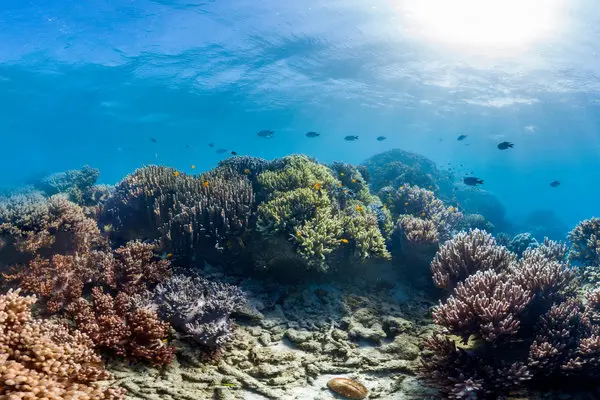The Coral Reef Watch program, run by the US government, has recently made significant updates to its heat stress warning system for coral reefs due to escalating temperature extremes. Last year, unprecedented heat levels wreaked havoc on reefs across the Americas, causing widespread coral bleaching and death.
According to Dr. Derek Manzello, the director of Coral Reef Watch, the profound impacts of heat stress compelled them to rethink their approach. Coral reefs, which are home to a quarter of marine species, are highly vulnerable to global heating caused by human activities like burning fossil fuels and deforestation.
Excessive heat can lead to coral bleaching, where corals expel the algae that provide them with color and nutrients, often resulting in coral death. The previous warning system had four alert levels, with the highest indicating severe bleaching and significant mortality. Now, three additional alert levels have been introduced to provide more detailed information on heat stress levels.
The warning system relies on a metric called degree heating weeks (DHW), which measures the cumulative heat stress experienced by corals. For instance, one DHW is accumulated if corals experience temperatures 1 degree Celsius above the usual maximum for seven days. Last year, many reefs experienced heat stress exceeding 20 DHWs, prompting the need for a more nuanced warning system.
The new alert levels range from 3 to 5, with level 5 indicating a risk of near complete coral mortality. These updates reflect the increasing severity of heat stress and aim to provide better guidance to scientists, conservationists, and marine managers worldwide.
Dr. David Wachenfeld from the Australian Institute of Marine Science praised the timely action taken by Coral Reef Watch in response to extreme heat events. He emphasized the importance of adapting to the changing climate and its impact on reefs.
Richard Leck from WWF-Australia highlighted the unprecedented nature of ocean temperatures and the urgent need to address global heating. Prof. Tracy Ainsworth from the International Coral Reef Society emphasized how heat stress events, once rare, have now become more frequent, leading to widespread coral mortality.















































